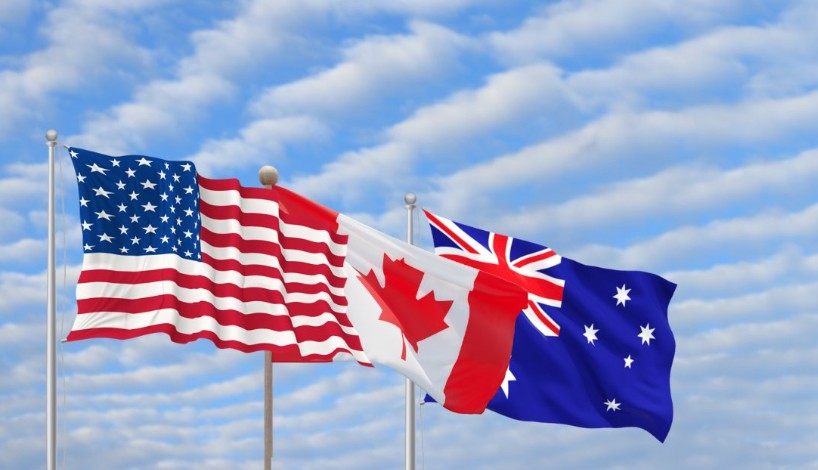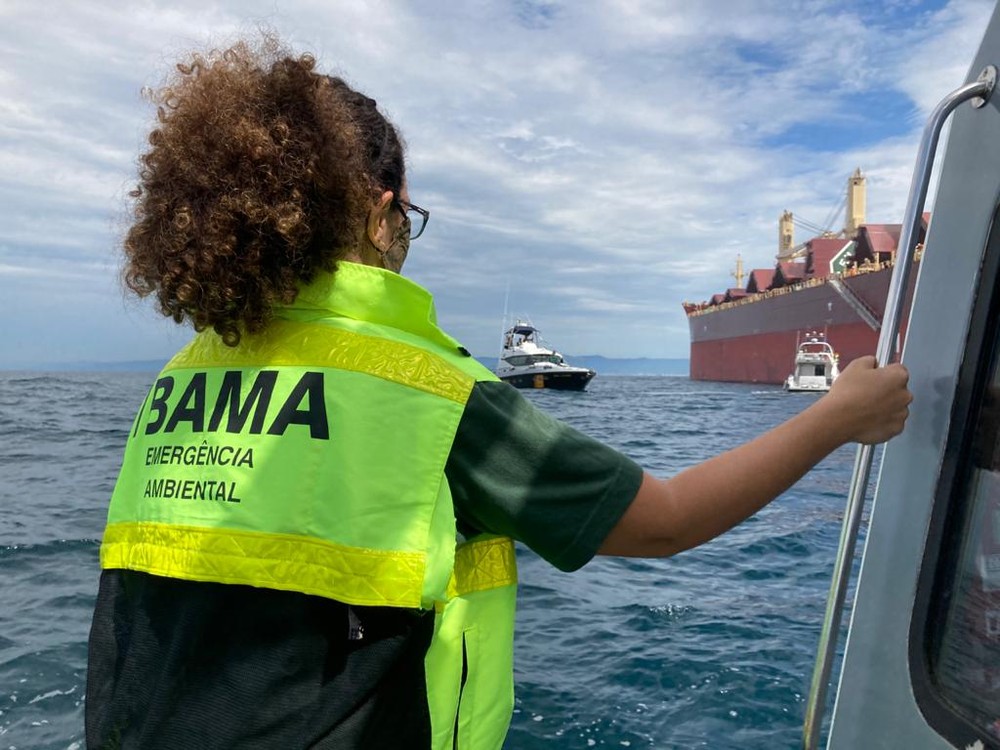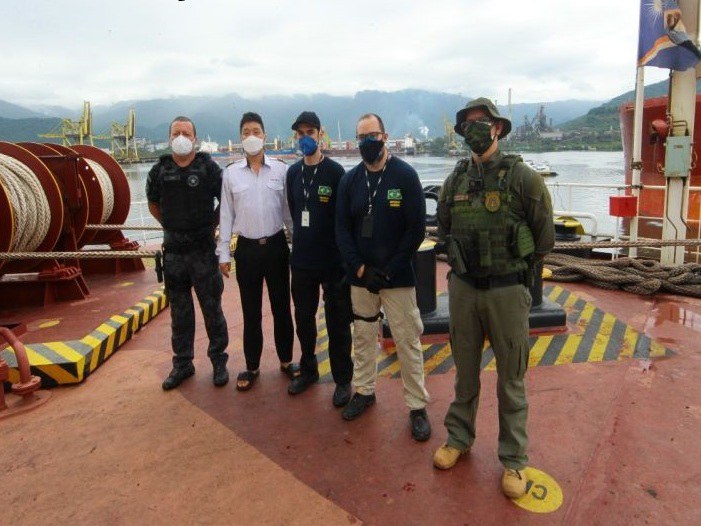
Visa exemptions for certain nationalities rei...
read more

A major joint operation was carried out in the Port of Santos in the last week of April. The aim was to inspect merchant ships to curb illegal dumping of oil and other pollutants into the sea, illegal fishing, drug trafficking, and other offences.
The three-day effort brought together officials from the Brazilian Navy, Brazilian Institute for the Environment and Renewable Natural Resources (IBAMA), National Waterway Transport Agency (ANTAQ), Santos Port Authority (SPA), National Health Surveillance Agency (ANVISA), Federal Revenue Service (Customs), Federal Police, Environmental Military Police, and Brazilian Air Force (FAB), in a multidisciplinary task force.
In February, local authorities launched a joint operation, dubbed “Operation Disposal”, which included surprise visits to vessels in the port to verify whether cargo holds had been washed and how wash waters and other residues were discarded. The vessel’s ballast water and solid waste disposal records, among other documents, were also examined. In this first phase, fifty ships were approached, including 22 cargo vessels at anchorage and six berthed alongside.
In the last week of April, the task force met again, under the coordination of the Navy, to inspect port facilities and fishing, passenger, and cargo ships. The authorities also called on some shipping agencies’ offices to cross-check information collected onboard the vessels.
In addition to marine pollution issues, the authorities looked at potential criminal offences, such as illegal fishing, contraband, and maritime drug trafficking. Sixty-nine ships were visited on this occasion. A port support vessel was detained, and at least 31 bulk carriers were placed under investigation for possible violations of health and environmental regulations. The authorities did not disclose the actual nature and severity of the alleged offences.
In their joint effort, IBAMA and ANVISA aimed mainly at the bulk carriers that arrive at Santos to load commodities such as soya beans, corn, and sugar. The environment and port health authorities verified the sewage and ballast water management on board the vessels and their effectiveness. They also checked how the vessels disposed of the waste generated by washing and cleaning the cargo holds.
Before coming alongside, bulk carriers usually have their holds washed and cleaned during passage or at the anchorage to meet the stringent standards of cleanliness required by agribusiness. Depending on the size of the vessel and the last cargoes carried, the task is performed either by the crew themselves or by shoreside contractors.
Under Port Authority’s Resolution DP 116.2013, dated 21 October 2013, hold washing and cleaning services within the Organized Port of Santos can only be performed by companies qualified and authorised by the competent regulatory agencies and previously accredited by SPA.
The port authority must be informed at least 24 hours in advance about the operation and may require copies of the vessel’s logs for cross-checking. The licensed companies must provide monthly reports of the services performed during the period, including information regarding the disposal of residues.
Cargo holds can be washed and cleaned at the anchorage within the port limits, provided the liquid effluents and any waste generated by the activity is discharged beyond 12 nautical miles from the shore baseline, following the guidelines established by the International Convention for the Prevention of Pollution from Ships (MARPOL) and other applicable legislation. Solid waste can also be removed for disposal ashore as per specific regulations.
Fines for sea pollution in Brazil range from BRL 5 thousand to BRL 50 million, without prejudice to civil public action for environmental damages, costs and expenses incurred with clean-up and waste disposal of waste and third-party suits. The prevailing jurisprudence of Brazil’s Federal Supreme Court is that “the claim for civil reparation for environmental damage is imprescriptible“.
According to IBAMA, the task force plans to take further action in the near future, including inspecting the operation of chemical tankers and verifying the sulphur content of marine bunkers on the vessels. They also intend to perform similar exercises in other ports. For obvious reasons, the federal environmental agency refrained from disclosing when the planned joint operation will occur.

Please read our disclaimer.
Related topics:
Rua Barão de Cotegipe, 443 - Sala 610 - 96200-290 - Rio Grande/RS - Brazil
Telephone +55 53 3233 1500
proinde.riogrande@proinde.com.br
Rua Itororó, 3 - 3rd floor
11010-071 - Santos, SP - Brazil
Telephone +55 13 4009 9550
proinde@proinde.com.br
Av. Rio Branco, 45 - sala 2402
20090-003 - Rio de Janeiro, RJ - Brazil
Telephone +55 21 2253 6145
proinde.rio@proinde.com.br
Rua Professor Elpidio Pimentel, 320 sala 401 - 29065-060 – Vitoria, ES – Brazil
Telephone: +55 27 3337 1178
proinde.vitoria@proinde.com.br
Rua Miguel Calmon, 19 - sala 702 - 40015-010 – Salvador, BA – Brazil
Telephone: +55 71 3242 3384
proinde.salvador@proinde.com.br
Av. Visconde de Jequitinhonha, 209 - sala 402 - 51021-190 - Recife, PE - Brazil
Telephone +55 81 3328 6414
proinde.recife@proinde.com.br
Rua Osvaldo Cruz, 01, Sala 1408
60125-150 – Fortaleza-CE – Brazil
Telephone +55 85 3099 4068
proinde.fortaleza@proinde.com.br
Tv. Joaquim Furtado, Quadra 314, Lote 01, Sala 206 - 68447-000 – Barcarena, PA – Brazil
Telephone +55 91 99393 4252
proinde.belem@proinde.com.br
Av. Dr. Theomario Pinto da Costa, 811 - sala 204 - 69050-055 - Manaus, AM - Brazil
Telephone +55 92 3307-0653
proinde.manaus@proinde.com.br
Rua dos Azulões, Sala 111 - Edifício Office Tower - 65075-060 - São Luis, MA - Brazil
Telephone +55 98 99101-2939
proinde.belem@proinde.com.br